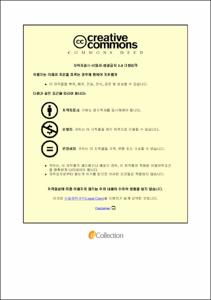중국 농촌에서 6차산업 융합의 발전과 주요 모델에 관한 연구
- Alternative Title
- A Study on the Development and Major Models of 6th Industrial Convergence in Rular China
- Abstract
- Agriculture provides food to humans and provides markets, raw materials and labor for the development and
growth of other industries.With the rapid development of the modern industrial economy and the information economy, how to realize the modernized development of agriculture has become an important research field and related to the national economy and people's lives.
Since the industrialization of the 20th century and 60s,as the economy has developed rapidly, the income gap
between rural and urban areas continues to widen, and many people are heading to cities considering their
children's education, culture, employment, leisure life,and transportation levels. Accordingly, only the elderly
and multicultural families continue to increase in rural areas, and the environment facing rural and agriculture
is facing a precarious situation.
As one of the measures to overcome these difficulties,the 6th industrialization of agriculture is drawing attention.This is because successful convergence between agriculture and secondary and tertiary industries
can overcome the problems facing agriculture and even play a role in creating new jobs in rural areas. In
addition,by strengthening the connection between industries, resource sharing can be maximized, and by
realizing the order of competitive joint ventures, barriers to entry between rural primary, secondary, and tertiary industries can be lowered. This can lower transaction costs and improve the production rate and
competitiveness of the agricultural industry.
Accordingly,this study examined the concept of e-commerce and the relationship between rural industries
and industries for convergence between rural industries and primary and tertiary industries based on literature
and previous studies published by Chinese government agencies. In addition, we looked at how the rapid
development of e-commerce in China can play a role in promoting the convergence of rural industries. To this
end, we focused on success stories to examine how various rural industries in China were able to grow
rapidly through convergence between industries and secure competitiveness in rural areas.
Second, this study explained the mechanism by which the structure of the traditional industry based on
e-commerce can be upgraded by conducting practical research for the development of e-commerce through
various literature studies and case study methods.China's e-commerce platform economy has changed the
industrial chain of the service industry in business by realizing scientific deployment of various service industry
development factors while creating a new service type,which has recently achieved rapid development.
Third,in studying the overall development of e-commerce, we tried to find a way to promote the convergence of rural industries under the e-commerce platform by combining cases of realizing convergence between the Internet and rural areas and cases related to rural e-commerce industry clusters.
- Issued Date
- 2022
- Awarded Date
- 2022. 2
- Type
- Dissertation
- Publisher
- 부경대학교
- Alternative Author(s)
- Qiu Tian
- Affiliation
- 부경대학교 대학원
- Department
- 대학원 경제학과
- Advisor
- 서석흥
- Table Of Contents
- 제1장 서론 1
제1절 연구의 배경 1
제2절 연구의 필요성과 목적 4
제3절 선행연구의 검토 6
제4절 연구방법 및 논문의 구성 10
제2장 6차산업의 개념,원리 및 유형 12
제1절 6차산업의 개념 12
제2절 6차산업의 융복합 원리 16
1.산업 다각화의 원리 16
2.전통과 현대의 결합 20
3.지속가능 발전의 원리 21
제3절 6차산업의 유형 23
제4절 6차산업 발전 정책 30
제3장 중국 농촌에서 6차산업 융합의 발전과 추세 35
제1절 개혁개방 이후 중국 6차산업 융합의 발전 과정 35
제2절 농촌 6차산업 융합의 현황 39
제3절 6차산업 융합을 위한 정부의 자금지원 45
제4절 6차산업 융합 발전의 특징과 추세 49
제4장 농촌 6차산업 융합의 주요 모델과 대표 사례 57
제1절 인터넷 산업+농업의 융합 모델 57
1.개요 57
2.대표 사례 62
제2절 과학기술+농업의 융합 모델 65
1.개요 65
2.대표 사례 69
제3절 관광업+농업의 융합 모델 73
1.개요 73
2.대표 사례 75
제5장 농촌 6차산업 융합의 문제점과 정책 과제 81
제1절 6차산업 융합의 문제점 81
1.농촌 서비스 발전의식의 부족 82
2.농촌 산업 계획의 불명확 83
3.산업융합 방식의 비과학성 84
제2절 문제점 발생의 원인 86
1.경험 및 인식 부족 86
2.이익의 비대칭성 86
3.규모의 한계 및 정책 지원 부족· 88
제3절 6차산업 융합의 발전을 위한 정책 과제 89
제6장 결론 97
제1절 연구의 요약 97
제2절 금후의 연구 과제 101
참고문헌 104
요 약 113
- Degree
- Master
- Files in This Item:
-
-
Download
 중국 농촌에서 6차산업 융합의 발전과 주요 모델에 관한 연구.pdf
기타 데이터 / 1.48 MB / Adobe PDF
중국 농촌에서 6차산업 융합의 발전과 주요 모델에 관한 연구.pdf
기타 데이터 / 1.48 MB / Adobe PDF
-
Items in Repository are protected by copyright, with all rights reserved, unless otherwise indicated.